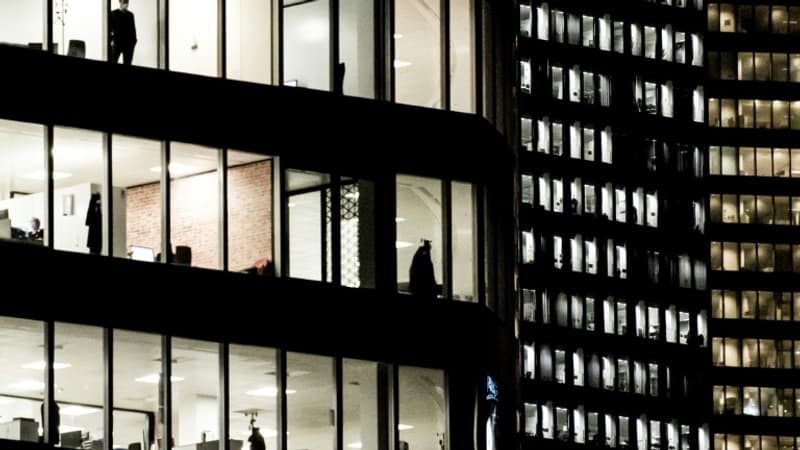Like all sectors, the office real estate sector is called upon by the government to propose measures to reduce its energy consumption. It should be remembered that, in most cases, these building owners/managers act as trustees by re-billing their commercial tenants for electricity consumed.
Obviously, these managers have been implementing actions and good practices with their clients in terms of energy sobriety for some time. At Icade, which operates no less than 2 million square meters of offices in France, “1,000 actions have been implemented over 10 years,” explains Benjamin Ficquet, Head of Operations, to BFM Business. “In 2019, we achieved a 15% reduction in our total consumption.”
But obviously, the current context of very high electricity prices doubles or even quadruples the bill of the tenant companies. “I have a lot of calls every day, there is a real desire to go faster and further,” continues the manager.
query a key
In addition to the structural measures requested by the government, such as lowering the heating to 19°C, Icade offers a series of solutions aimed especially at softening the calls for concentrated energy at certain times of the day in offices.
The manager does not intend to restrict for the sake of restricting. “We can rely on RTE’s EcoWatt app to tailor responses. If we enter the orange zone (electrical system adjusted in the region and eco-gestures welcome, editor’s note) we can limit certain services”, continues the manager.
“Encouraging people to climb stairs is like encouraging people to ride a bicycle”
Furthermore, consultation seems to be the key to the correct execution of these measures. “You have to communicate, support and share the results. This is the only way to strengthen the commitment. This must be a high point of discussion. For example, we distribute training kits. For example, turn down the heating to 19 °, block the first floors of elevators can be misperceived or even counterproductive. We need to provide alternatives, explain how to get around these limitations. This can also be an opportunity for an internal challenge.”
Actually, the current problem has more to do with time. The context, the urgency “pushes us to do everything at once and from now on, hence an even greater need for information. But I am not worried, I am even excited to see the degree of business commitment”, concludes Benjamin. Ficquet optimistically.
Source: BFM TV


